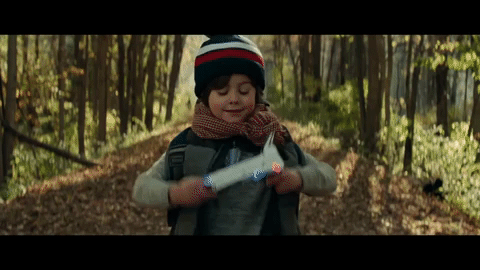“5miles” is emblazoned on the left breast of the Mavericks’ cobalt-blue jerseys in safety-orange type. It’s the name of a mobile marketplace company that signed a sponsorship deal with Dallas last month; on Tuesday night in a game against the Phoenix Suns, it might as well have been the reading on Aaron Harrison’s odometer. The Mavs guard, at the end of his second 10-day contract with the team, played the entire 48 minutes, running 3.33 miles, a greater distance traveled than any of the other 134 NBA players who took the court that night. He didn’t exactly have a choice. There was practically no one behind him on Dallas’s bench.
On Tuesday night, I watched a game of basketball played after the rapture. Prior to the final regular-season game for both the Suns and Mavs, we were told that 18 players—eight Mavs and 10 Suns—would likely sit out of the game, leaving each team just barely in compliance with the NBA rule that states “a team must have a minimum of eight players dressed and ready to play in every game.”
Phoenix, which had secured the league’s worst record in a 17-point loss to the Warriors on Sunday, had nothing to play for. The Mavs, on the other hand, were playing for the right to see their lottery fate decided by a random drawing at the end of the season. If they lost—spoiler alert: they did, 124-97—they would tie the Atlanta Hawks’ 24-58 record. In essence, Dallas was playing for the right to be the third-worst team in the NBA. Despite serving up fewer players as sacrifice to the basketball gods than the Suns did, the air of desperation was strong in the Mavs’ tank: Seven of their eight available players went undrafted; four had played in the G League at some point this season. The Suns’ starting lineup had two top-five picks of the past five years (Dragan Bender and Alex Len) and somehow felt just as much of a talent drain.
In the first quarter, Mavericks analyst Derek Harper, 56, who retired from the NBA about two decades ago, joked that a few members of the Suns approached him before the game and asked if he could play for their shorthanded team. Play-by-play announcer Mark Followill, without skipping a beat, noted that he knows Harper can still play basketball. Followill never specified at what level he believed his partner was still capable, which was as scathing an indictment on the quality of play as anything (aside from maybe the final 2017-18 installment of a longtime Mavs’ halftime interview bit, wherein analyst Jeff Wade talked to Mavs player development coach Mike Shedd about hand grenades and thumb wrestling). The Suns may have tallied a season-high 35 assists in the game, but the crispest pass I witnessed all night was a top-of-the-arc 3 that Tyler Ulis bricked majestically, clanking hard on the left side of the backboard and straight into Bender’s hands for an easy basket right at the rim:

This, I thought, was the perfect way for the NBA regular season to end. I’ve expressed my enthusiasm for tanking before: When teams tank to the depths that the Suns and Mavs plumbed, the nature of the game changes entirely, which is an utterly fascinating and terrifying thing to consider. In soccer, players are put at an inherent disadvantage by being robbed of the tools that in part define the human experience: their hands. That very basic tenet of the sport shapes how our expectations are created and understood: The rare moments of unadulterated beauty on the pitch create uproars like no other sport because there’s a tacit understanding of how unreasonably difficult those moments are to create. Extreme tanking sets into place a similar limiting factor in basketball. The NBA is where amazing happens. Strip out most of the amazement, and what happens?
Alec Peters. Alec Peters is what happens.
Valparaiso’s all-time leading scorer put on a garbage-time (garbage-game?) clinic Tuesday, dropping 36 points on 12-of-20 shooting (8-for-13 from 3) in just under 28 and a half minutes. In space, Peters runs like he’s churning on a StairMaster, with his arms awkwardly swaying, as if he’s constantly on the verge of losing balance. But in small bursts around a screener on a curl, Peters damn near looked like Ray Allen. By the end of the third quarter, Peters had charmed the Mavs announcers so much that they found themselves rooting against their home team. “I want to see him break an NBA record tonight,” Wade said. “I want to see him hit 15 3s. I think he can do it. I think he’s feeling it.”
Wade, a few possessions later: “I want to see Alec Peters pull from midcourt off the dribble. Entertain me!”
By the waning minutes, the Suns were treating their second-round rookie like he was Devin Booker, force-feeding him in an effort to break several franchise records. But Peters was completely gassed, rushing layups on cuts, losing his footing running around screens, and leaving his hands on his knees at every opportunity. “I looked over at [Mavericks] coach [Rick] Carlisle and he was looking at me wide-eyed and I’m like, ‘I’m exhausted right now,’” Peters said after the game.
“We had trouble stopping Larry Bird, dressed up as Alec Peters,” Carlisle said.
It was a strange valediction to a strange year; a righteous act of tanking in the final season of tanking as we know it. The Suns scored 80 points in the second half alone. The young team had, in a way, done a 180 on its season: Phoenix managed to score only 76 points in its first game of the season, a 48-point loss to the Blazers. This scoring barrage was fueled by Peters’s meeting with the divine, Shaq Harrison’s relentless motor, and Danuel House’s bloodlust at the rim (... and the Mavs giving up their 10-point halftime lead and flipping the off switch for aforementioned tanking reasons). Exit interviews are upon us; for all we know, those names will never again resonate the way they did Tuesday night.
The forthcoming postseason promises to be one of the most tightly contested in recent memory, but there’s no point in rushing to something that will soon arrive. Suns-Mavs was a perfect voyage into a wormhole that might be wiped from the future. I’ll probably forget the names of half the guys who played in the game, but I’ll never forget the time that Alec Peters was compared to Steph Curry. Tanks for everything.
